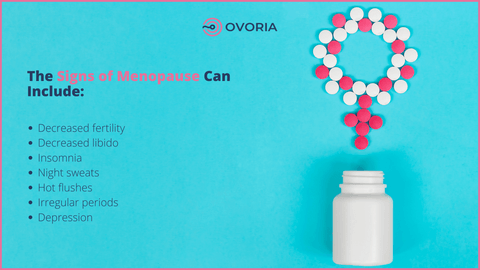Does a Woman's Biological Age Affect Fertility?
According to the research, about 70 per cent of couples conceive naturally within 18 months of trying to create, and 90 per cent conceive within two years. Contrary to popular belief, the percentage of couples experiencing fertility problems has remained relatively constant since the first surveys in the 1980s. However, there's no denying the fact that fertility does decline with age. For younger women, the chances of becoming pregnant are 20-25% each month. But after 35 or older women, the chances fall to about 10%. So many women haven't heard about the connection between a woman's biological age and fertility. That's why it is essential for women who want to be mothers to pay attention to their fertility window throughout life because, in advanced biological reproductive age, a woman has an increased risk of conceiving.

What Is a Biological Clock?
Fertility decreases with men and women age. The biological clock's definition means that when a woman gets older, it starts to be challenging to get pregnant, especially after advanced maternal age. But on the other side, the purpose of the biological clock can put pressure on some women who are not ready to have a child at a certain age.
A few years ago, there was much interest in 'Biological Clock Tests' that claim to predict future fertility by measuring AMH (anti-Mullerian hormone) to assess ovarian reserve. The test for anti-Mullerian hormone allows doctors to understand how fertility drugs during IVF treatment will be helpful for a woman. However, these tests don't tell us about a woman's future fertility prospects or how fertility can change with time. The risk with these tests is that a woman may think she can safely put off having children if her fertility is fine today. She may be devastated to find out only after a couple of years that she has become sub-fertile and has difficulties conceiving.
Why Does Fertility Decline With Age?
As a woman ages, there are changes to the rhythm of her biological clock. Menopause is used to refer to a specific point in time—twelve months after the last period. The definition of menopause can be used for describing the end of the menstrual cycle.
The signs of menopause can include:
- Decreased fertility
- Decreased libido
- Insomnia
- Night sweats
- Hot flushes
- Irregular periods
- Depression

What Are The Signs of Infertility?
Female infertility is the inability of a woman to conceive pregnancy for at least a year with no results due to some factors like ovulation disorders, endometriosis or tubal blockage. There is a list of different types of female infertility: primary infertility, secondary infertility, sterility, unexplainable infertility.
The main symptom of male infertility is the inability to help his wife conceive. However, there are some other signs of male infertility, which can include:
- Issues with reduced sex drive, difficulty ejaculating or erection;
- Low sperm count;
- Abnormal breast growth (gynecomastia);
- Reduces muscle mass;
- Hormonal abnormality;
- Pain in the testicle area.
What Are The Options For Delaying Pregnancy?
Nowadays, women are more independent, free-spirited and career-oriented than ever before. They want to fulfil their professional dreams before starting or expanding their family. But thanks to Assisted Reproductive Technology, there are many options for couples who are not ready for the pregnancy right now, but maybe in the future they will want:
Freezing of ovarian tissue: In this procedure, doctors remove a portion of the ovary containing immature eggs and freeze it. Then it is transplanted back into the body.
In Vitro Fertilization (IVF): It is a fertility treatment that involves the incubation of eggs and sperm from a couple in a laboratory to produce an embryo. Then a fertility doctor will place the embryo into the woman's uterus, where it may implant and result in a successful pregnancy.
Embryo cryopreservation: Embryo cryopreservation involves freezing and storing embryos. After they are thawed, they can be used in vitro fertilization. Cryopreservation is an integral and important part of most IVF programs. There are two methods of freezing in the In Vitro Fertilization laboratories:
- Slow freezing
- Vitrification

